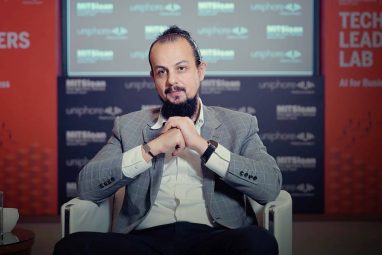Topics
What to Read Next
- More than 80% of Saudi CEOs adopted an AI-first approach in 2024, study finds
- To Build AI-Powered Ecosystems, Prioritize Local Talent and Knowledge-Sharing: HP’s Enrique Lores
- UiPath Test Cloud Brings AI-Driven Automation to Software Testing
- Oracle Launches AI Agent Studio for Customizable Enterprise Automation
- Cracking the Culture Code for Successful Digital Transformation
- Four Keys to Effective Horizon Scanning
In this interview for MIT SMR Voices, Albert Phelps, Co-founder of Tomoro.ai, discusses how leveraging human communication skills in prompt engineering maximizes AI potential, enhances collaboration, and drives enterprise innovation.
Prompt engineering plays a key role in unlocking the full potential of large language models (LLMs) in business settings. Albert Phelps, Co-founder of Tomoro.ai, explains that it is about capturing human intention and translating it into clear instructions for AI. Those skilled in guiding people can apply the same abilities to prompt engineering, making the skill accessible across various roles in enterprises.
To enhance the reliability of AI responses, Phelps points out that augmenting prompts with trusted information—through techniques like retrieval-augmented generation—reduces hallucinations and ensures the accuracy of AI outputs. This method combines relevant data with the model’s capabilities, providing businesses with valuable and actionable insights.
In this interview for MIT SMR Voices, Phelps also discusses:
- Challenges of integrating synthetic employees into businesses lacking AI upscaling competencies.
- Importance of embracing AI as a collaborator rather than a replacement for human creativity.
By implementing structured frameworks such as AI agents, integrating structured prompts, and incorporating human interaction patterns and guardrails, businesses can navigate LLMs’ creative potential while ensuring reliability. Read more in the article “How LLMs are Shaping Enterprise-Scale Applications.”









